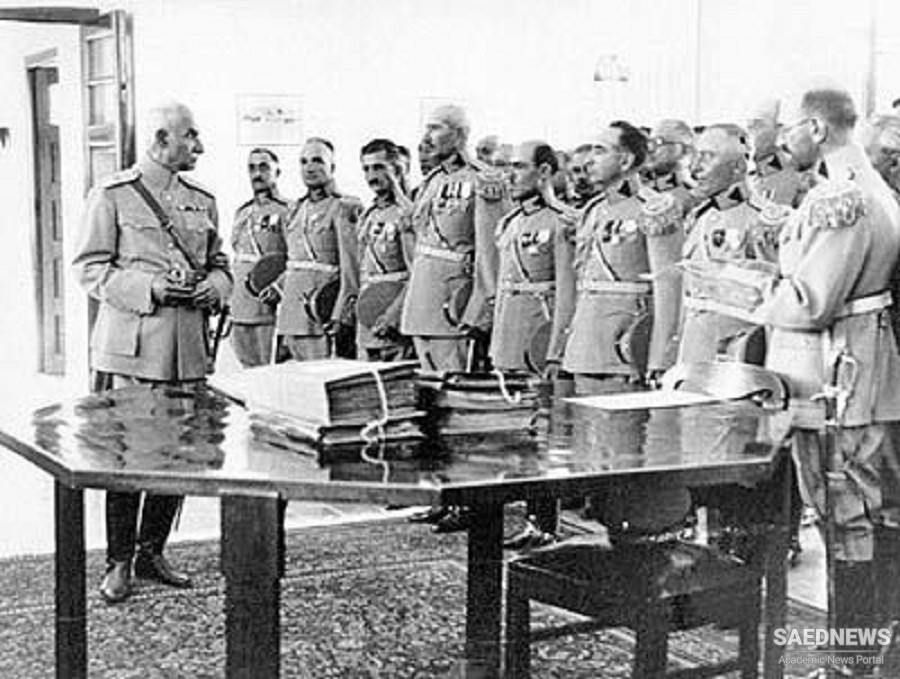By 1915, the zones of influence agreed to in 1907 were no longer limited to the northern and southern provinces. There was a tacit understanding between the two powers that the entire country was fair game, so long as the accepted zones of influence were still honored and, equally vital, Germany and the Ottoman Empire were barred from operating in the two zones at all costs. In November 1915, Russians occupied Qazvin with the intention of marching on Tehran, and soon after an advanced detachment reached Karaj, only thirty miles west of the capital. The pretext was to preempt a pro-German “coup” in the capital. The upheaval brought about the closure of the third Majles.
Iranian nationalists were sympathetic toward imperial Germany, as they were toward the Young Turks and their pan-Islamic advocacy. Before sufficiently becoming disillusioned with the Young Turks’ haughty conduct or outraged by their pan-Turkist (occasionally pan-Turanist) territorial ambitions over Iranian Azarbaijan, they saw collaboration with the German-Turkish axis as a viable counter to Anglo-Russian occupation. Ottoman connections, nevertheless, were always hampering the German efforts in Iran, and Iranians never really warmed up to the idea of panIslamism. Backed by the energetic German envoy in Tehran and his staff, members of the nationalist bloc—a coalition of politicians, mostly Democrats, as well as veterans of the 1909 civil war and a number of intellectuals and journalists—created the Committee for National Defense and began to withdraw toward Qom. They were supported by a negligible force from among the constitutionalist fighters of earlier years and some gendarme units led by Swedish officers.
Facing the Russian advancing army, the committee intended to transfer the capital to Isfahan and hoped to persuade the young Ahmad Shah, who at the age of fifteen has just been invested as the new Qajar monarch, to join them there. Once a mismanaged coup, organized by the German military attaché Count Kanitz, failed to move to Qom the government of premier Hasan Mostowfi al-Mamalek (c. 1871–1932), the young shah, under pressure from the British and Russian representatives, abandoned the idea at the last hour. He was vaguely assured by the two powers that his capital would not be overrun and that he would survive on the Qajar throne. With the departure to western Iran of the so-called Mohajerin (immigrants) as the supporters of the Committee for National Defense came to be known, the capital fell even more firmly under the spell of Anglo-Russian influence and their demands for greater compliance.
The breakdown of Iran’s fragile resistance after brief engagements with Russian forces in the vicinity of Qom and Hamadan forced them to withdraw further west to Kermanshah and beyond toward the Ottoman border once the Young Turks had prevailed over the British army in Kut, in the summer of 1916. There, under the Turkish shield and with the backing of the German agents who were assigned to help the Iranian nationalists, the Committee for National Defense formed a provisional government in exile. There the provisional government maintained a precarious presence until the winter of 1917, when a new Russian offensive drove the Turks—and with them, most of the Mohajerin—out of Iran.
With an odd mix of Majles deputies, elderly statesmen, political activists, clerical leaders, soldiers, and intellectuals, the provisional government aimed to organize a resistance movement through a network of urban and tribal supporters. It further concluded an agreement that obligated Iran support the Central Powers in exchange for German and Turkish efforts to wipe out the Allied presence in Iran and restore the nationalist government in Tehran. With the Russian defeat of the Ottomans in Kermanshah in April 1916, however, most of the Mohajerin were forced to retreat further to Anatolia, Kurdistan, and southern Iraq, where they awaited an uncertain future. Disillusioned and out of funds, the struggling resistance quickly fizzled; some trickled back to Iran, and others wandered in Iraq and Syria, gravitating toward Istanbul and beyond.


 Academic Renaissance: Birth of Modern University in Persia
Academic Renaissance: Birth of Modern University in Persia














































